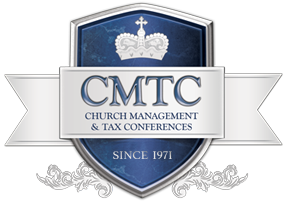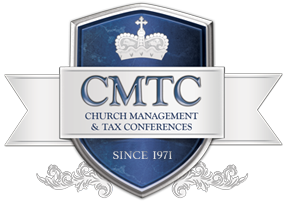As I travel across the nation conducting Church and Clergy Tax Conferences, I am amazed at the number of Ministers and Board Members who continue to embrace the false notion that the Church Pastor can receive a 1099 from the Church at the end of each year.
Just two weeks prior a Pastor adamantly insisted that his organization assured him that it was no violation of Internal Revenue Codes and that they would continue the 1099 route rather than issue him a W-2.
An Evangelist, guest speaker, or guest psalmist is considered a contractor, but a Pastor is an employee. 1099’s are income reporting forms for Contractors, but not for employees.
The Pastor is not the only employee of a Church. Paid musicians, paid Praise and Worship Leaders, and anyone else who works on the inside of the Church and paid by the Church must receive a W-2.
Many Churches are attempting to find loopholes to misclassify employees to avoid withholding taxes and FICA. If you are one of these stop that practice now. The IRS can assess huge penalties for anyone or any organization that misclassifies the employment status. The following are just a few:
• Liability for an amount equal to 1.5% of wages (3% if no information return was filed)
• You may be liable for 20% of the worker’s share of Social Security tax that should have been withheld (40% if no information return was filed)
• Possibility of Tax Evasion with civil penalties equal to 100% of the total amount of tax evaded and an additional criminal penalty of $100,000.00
• Failure to file correct information that assesses a civil penalty of $50.00 per statement imposed
These are just some of the pitfalls that may be encountered.
It is very simple to determine who is and who is not an employee. The IRS enforces the Common Law Employee Test to determine the proper classification. There are 20 rules that apply and if the individual meets any one of these 20 he or she must be considered as an employee and issued a W-2. A few of the 20 rules are as follows:
• Works on the Church’s premises
• Uses church tools and materials (including instruments, microphones, etc.)
• Can be discharged by the Church
• Can terminate the relationship without incurring liability
• Is required to comply with Church instructions about when, where, and how work is done
The above is not exhaustive – there are 15 more. If any or all of the rules apply the individual MUST be classified as an employee.
Do not get caught out of compliance. Call 800-344-0076 and register for a Clergy Management Tax Conference. We are the Ultimate Clergy and Church Tax professionals in the World. When you engage our services you engage 77 years of experience. Pastors, Treasurers, and Church leaders can rest easy knowing the Church books are in the hands of the best.

